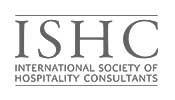The downturn's aftermath: Attributes of success | By Angelos Loizou, ISHC
The consequences of the global economic crisis on the tourism industry and citizens in societies dependent on it are governed by the same fundamental principles. However, we can’t ignore the diversity between regions and countries where tourism revenues are the primary source of domestic wealth, such as southeastern and southwestern European countries, as well as many Mediterranean countries in northern Africa.
During the past decades, the tourism industry in many of these countries has registered huge growth rates. The tourism partners in these regions, as well as the societies in general, have matured and operated in a highly favorable economic environment, with increased tourist demand at the business and individual levels.
The economic crisis in the tourism industry is marked by too much supply unsatisfied by too little demand, which was manifested by reduced occupancy at first, followed by a reduction of the average room rate. This was particularly noticed in countries located around the Mediterranean Basin (Spain, France, Italy, Greece, Turkey, Cyprus), the Balkans (Croatia, Bosnia-Herzegovina, Bulgaria), North Africa (Lebanon, Morocco, Tunisia), as well as central and western Europe, a region attracting about 50 percent of the global tourist activity, historically.
Tourist products that have managed to survive the crisis are those in a position to expect recovery. Supply is at significantly lower levels, and occupancy rates have stabilized at low levels. It’s evident there’s fertile ground for deploying healthy competitive practices among those who have survived, satisfying demand and leading to a slow but steady recovery.
The most common feature of countries that survive periodic economic downturns is the collective tourist conscience, which originates in and is communicated by the administrative authorities of societies (central governments and local authorities) to citizens (professionals or not) who live and work therein.
In other words, tourist product is much more resistant to external, destabilizing factors in societies where tourism partners have the ability to pave their strategy and implement it in a timely and efficient manner.
This has been implemented in practice through the numerous examples of private/public partnerships (PPPs). The right partnerships between the public sector, local authorities and private investments, especially in this period of financial crisis, have shown to bring about substantial benefits such as the following:
- the use of economies of scale;
- achievement of targets and results;
- achievement of synergies; and
- multiplying positive results.
The negative economic environment also has revealed the significance of the performance of incentives provided by central administrations for green investments in the tourism sector, as well as investments in line with the principles of sustainability.
Finally, an important factor in differentiating healthy tourist products that have managed to come out of the global economic crisis unscathed (or at least with less difficulty than others) was the setting of specific priorities by central administrations in cooperation with local stakeholders such as:
- focusing public expenditure on research, research networks and education for the tourism industry and empowerment of private research;
- supporting innovative entrepreneurship and developing services to support innovation for investments in the tourism industry; and
- developing financial mechanisms and establishing a state guaranteeing an oversight body.

The downturn’s aftermath: 10 priorities for managing in a recession | By Angelos Loizou, ISHC
The downturn's aftermath: Experiences gained, lessons learned | By Angelos Loizou, ISHC
The downturn’s aftermath: Impact on tourist profiles and behaviours | By Angelos Loizou
International Society of Hospitality Consultants (ISHC)
ishc.com
1912 Hallman Street NE
USA - Atlanta, GA 30317
Phone: 678.973.2242
Email: abelfanti@ishc.com
Nominations Open for the 2026 Rising Star Award CALA co-hosted by ISHC and the Hotel Investment Group by Northstar to be presented at ALIS CALA
ISHC Honors Bruce White with the Pioneer Award at ALIS
Now Accepting Nominations for the 2026 Young Leader Award at Questex’s IHIF EMEA

